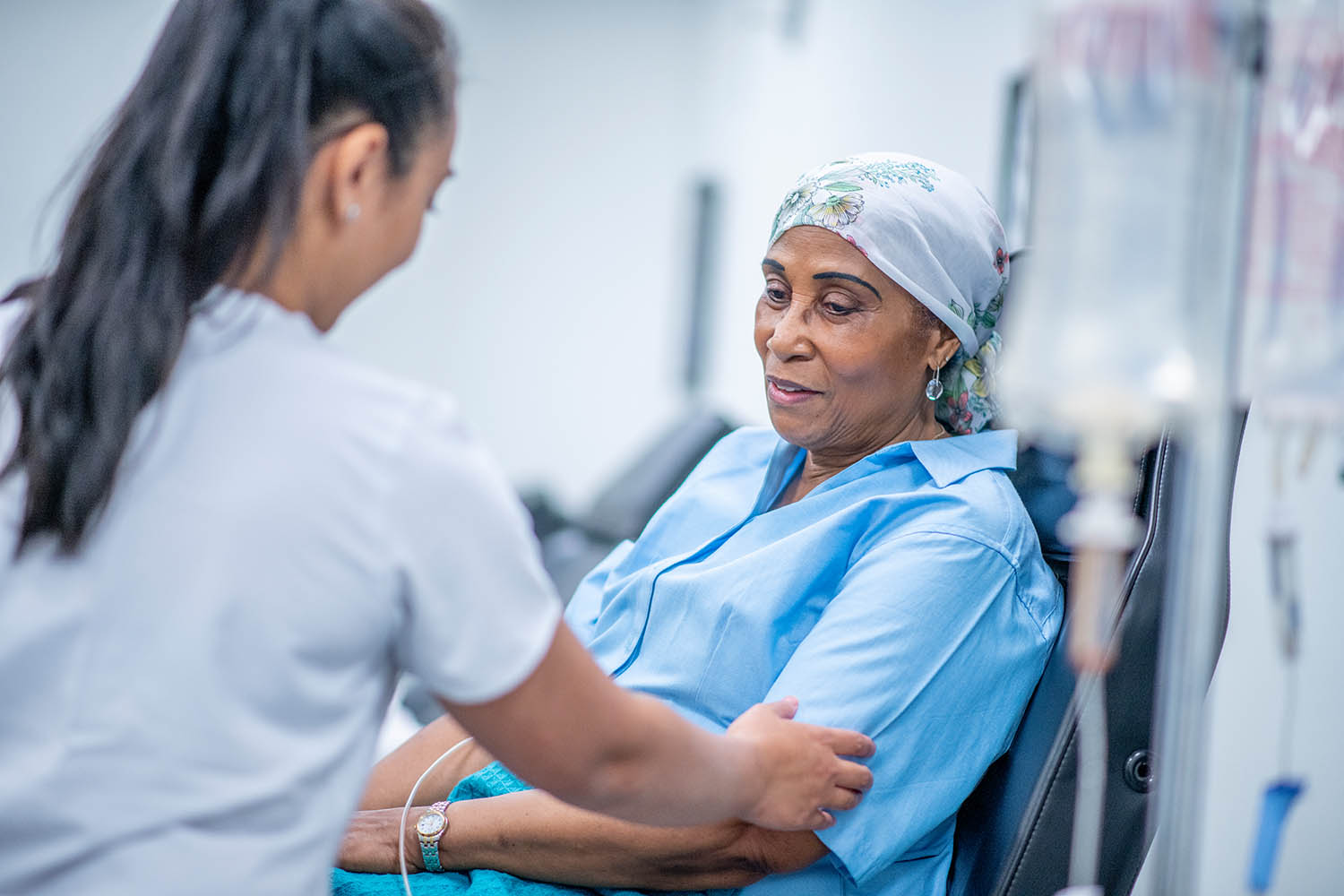For over four decades, the developed world has been quietly beating cancer. The death rate, when adjusted for age, is falling rapidly, mainly owing to new treatments and big public efforts to stop people smoking. More awareness of bugs that can cause cancer, such as H-pylori in the stomach, have helped, too. In the US, for example, stomach cancer mortality was nine times lower in 2021 than it was in 1950.
But Britain may be missing out on the cancer revolution – or at least, it is being left behind. At the last count, we had more cancer deaths per person than any other G7 country. We do particularly badly when it comes to the deadliest sorts: for lung and stomach cancer, we rank 28th out of 33 countries with similar wealth and income levels; for brain cancer we are 25th and for liver cancer we are 21st.
And things are due to get worse. A new paper from the London School of Hygiene and Tropical Medicine finds that the increase in cancer survival is slowing for all cancers in England and Wales. Last week, too, we heard that by 2040 more than 6m cancer cases could be diagnosed in England, double the rate of the 1970s.
The disease holds up an unflattering mirror to the NHS as a whole
It may be tempting to think we can solve this problem with hi-tech ideas – investing in screenings, or wonder drugs. The health secretary, Wes Streeting, aims to improve early detection: he has talked of rolling out a national screening programme. But that may not do much in reality. It would be impractical to screen everyone for every cancer they could get – there are far better uses for NHS funds. In fact, most cancers are detected not through routine checks but when a patient goes to their GP with symptoms that get them an urgent referral.
New drugs are a relatively small part of the picture, too, according to Prof Richard Sullivan of King’s College London. This week a row between Streeting and the pharmaceutical industry on the price of prescription medicines led some to worry about the access to the newest cancer drugs. But that may not swing the balance either. “A lot of the drugs we are paying over the odds for do not deliver significant clinical benefits,” Sullivan says. “Old-fashioned chemotherapy still dictates most of the outcomes.”
Instead, our faltering record with cancer may show something more fundamental. As cancer is a complex disease, it engages many parts of the health system: not only imaging, pathology and oncology, but specialisms in all parts of the body. The disease holds up an unflattering mirror to the NHS as a whole.
Cancer reveals our flaws in three major ways. One is that the different parts of the NHS do not work together smoothly. It is not easy to push urgent cases from, say, ear and throat specialists to oncologists to surgery and back. Some date this to the Health and Social Care Act in 2012, a well-meaning attempt to improve health services by introducing competition. “This turned everyone against each other,” says Sullivan. “Competition and choice do not work for cancer: you need highly integrated systems, with someone commanding from the top and pushing things through.”
A second factor is lengthy waiting times, which explains a large part of the gap between Britain and other countries. Cancer is progressive – a mere four-week delay, on average, causes the risk of death to rise by 10%. In Britain people are diagnosed so late for pancreatic cancer that seven in 10 receive no treatment at all. Just 65% of brain tumours are caught in time for surgery or chemotherapy. We now meet targets for diagnosis – but only because we have softened them. The “two-week wait”, for example, has gone.
But worse still than our diagnosis delays is the wait to start treatment, when people know they have cancer. The NHS has a “62-day target” for this (the countdown starts from the referral), but we haven’t met it since 2015. In June about 11% of people were waiting for more than 100 days to begin treating their cancer. “We have a very poor performance against waiting time targets due to high pressure on the services in general,” says Jon Shelton at Cancer Research UK.
The third problem is that Britain is an uneven mosaic when it comes to cancer care. This is linked closely with social deprivation – death rates are almost 60% higher in the most deprived areas. People who cannot afford to take time off to go to clinics, or who live in rural areas with little transport, suffer most.
No rapid technological fix will work here – big reforms are needed. The good news is that we have managed this for some cancers. Britain is much better at treating cancer in younger people, as such cases are pushed through aggressively, whereas older people with multiple health problems can get lost in the system. Breast cancer, which absorbs much of our funding, is also well treated in the UK.
We should spend more on cancer, and are behind the EU average. But for real change we might try copying Denmark, where cancer survival looked similar to the UK in 1995, but has dramatically improved. The one-year survival of lung cancer, for example, doubled in 25 years. Their secret? Denmark has large, centralised cancer services, which can coordinate care, fast-tracking patients and bringing them in from rural areas. If we want to keep up with the revolution, we should try the Danish model.
Photograph by Getty Images
